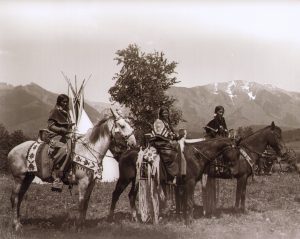Canada, a land of breathtaking landscapes, politeness, and hockey, is also home to some genuinely peculiar laws that might leave you scratching your head. While the Great White North is known for its friendly demeanor, these quirky regulations add a touch of whimsy to the country’s legal landscape. Let’s take a lighthearted journey through 17 weird and wonderful Canadian laws that will surprise and amuse you.
1. No Whaling in Alberta Seriously?: Alberta, a landlocked province known for its prairies and oil fields, is an unlikely setting for a law against whaling. However, it is explicitly stated that hunting or killing whales within Alberta’s borders is illegal. While the practicality of this law is debatable, it adds an unexpected touch of marine conservation concern to the heart of the Canadian Rockies.
2. Forbidden Fido Fun in Gatineau: In Gatineau, Quebec, a law puts a damper on the playful antics of our four-legged friends. Engaging in a game of catch with your dog in a public place is illegal. While the intention might be to maintain order, one can’t help but wonder if this law has left local canines yearning for a good game of fetch.
3. Buttered Popcorn Predicament in Nova Scotia: Nova Scotia takes its water activities seriously, which extends to popcorn. It is illegal to water ski on buttered popcorn in this maritime province. While this law seems like the stuff of dreams or a bizarre movie scene, it likely serves as a quirky way to discourage reckless water activities.
4. Don’t You Dare Paint That Wooden Ladder in Oshawa: In Oshawa, Ontario, there’s a head-scratcher of a law stating that painting a wooden ladder is illegal. The reasoning behind this prohibition remains unclear, but it adds a curious twist to the city’s regulations. Oshawa may have a soft spot for the natural beauty of unpainted wooden ladders.
5. It’s a Crime to Scare the Queen in Canada: Canada’s deep respect for the British monarchy is evident in its laws. It is, in fact, illegal to scare the Queen. The criminal code explicitly states that any action causing alarm to Her Majesty is prohibited, with severe penalties attached. So, if you find yourself in the presence of royalty, remember to keep your surprises in check.
6. No Snowball Fights Allowed in Souris, Prince Edward Island: Winter in Canada wouldn’t be complete without a friendly snowball fight, unless you’re in Souris, PEI. Here, snowball fights are strictly forbidden. While the intention may be to prevent injuries, it’s hard to imagine a Canadian winter without at least one snowball skirmish.
7. Unlawful Goatees in Eureka, Nunavut: Residents in Eureka, Nunavut, might have facial hair problems. Goatees are illegal. The reasoning behind this law is anyone’s guess, but it adds a touch of rebellion to the Arctic outpost’s facial hair scene.
8. Avoid Street Theater in Toronto: Toronto, a city known for its vibrant arts scene, has an intriguing law, no street theater on Sundays. This might make you wonder if the city fears spontaneous theatrical expressions disrupting its Sunday serenity. It’s a peculiar restriction that adds an unexpected layer to the city’s regulations.
9. The Oreo Cookie Dilemma in Canada: In Canada, the humble Oreo cookie faces a unique legal classification. The filling is considered a “creamy substance” rather than a “cream,” impacting import regulations. This showcases the meticulous nature of Canadian food regulations and the specificity with which specific products are scrutinized.
10. No Beekeeping in Leamington After 8 PM: Leamington, Ontario, known for its thriving agricultural industry, has an odd beekeeping restriction. While beekeeping is generally encouraged, it is against the law in Leamington to keep bees after 8 PM. The reasoning behind this time limit is a mystery, but it adds a curious twist to the town’s beekeeping regulations.
11. Tie Your Horse Outside the Post Office, Not to a Parking Meter: Tying your horse to a parking meter is unlawful in some areas of British Columbia. This seemingly outdated law adds an exciting layer to the intersection of modern transportation and historical equestrian practices. So, if you find yourself riding through some regions of BC, choose your parking spot wisely.
12. ‘Eh’-mazing Pronunciation Protection: In Caledon, Ontario, a law protects the pronunciation of the iconic Canadian interjection “eh.” While enforcing such a law might be challenging, it reflects Canadians’ pride in their unique linguistic expressions.
13. Leave Your Horse at Home in Toronto Dance Halls: Leave your horse home if you dream of dancing the night away in a Toronto dance hall. According to an old bylaw, bringing a horse onto a dance hall’s premises is illegal. While the practicality of this law in modern times is questionable, it adds a touch of historical charm to Toronto’s nightlife regulations.
14. Do Not Whittle in Public in Oshawa: Oshawa makes another appearance on our list with a law against whittling in public spaces. While whittling may seem harmless, the city views it differently. Oshawa may be concerned about the dangers of wayward wood shavings, a hazard that must be taken seriously.
15. Wearing a Mask? Make Sure It’s a Good One in Quebec: In Quebec, a law dictates the acceptable reasons for wearing a mask. While likely related to security concerns, the law’s specific wording leaves room for interpretation. So, if you plan on donning a mask in Quebec, make sure you have a good reason, costume parties may not be sufficient.
16. No Dirty Carriages in Toronto: In Toronto, it is against the law to drag a dead horse down Yonge Street on Sundays. While this may sound morbid, it likely stems from historical practices related to sanitation and the disposal of deceased animals. This law serves as a reminder of Toronto’s evolution from its early days as a bustling horse-drawn carriage city.
17. Unsanctioned Igloos in St. John’s, Newfoundland and Labrador: St. John’s, known for its picturesque landscapes and vibrant culture, has a law against constructing unsanctioned igloos. While seemingly quirky, it’s likely a measure to ensure the safety of temporary structures during the winter months. So, if you have an urge to build an igloo in St. John’s, make sure to get the proper approvals.
These 17 laws are just a glimpse into the whimsical world of Canadian legislation. From peculiar prohibitions to unique linguistic protections, Canada’s legal landscape is filled with surprises that add to the country’s charm and character. As you traverse this vast and diverse nation, remember these laws. You never know when you might encounter a buttered popcorn water skiing enthusiast or a law-protected pronunciation of “eh.” Canada, with its quirks and charms, continues to captivate and amuse residents



